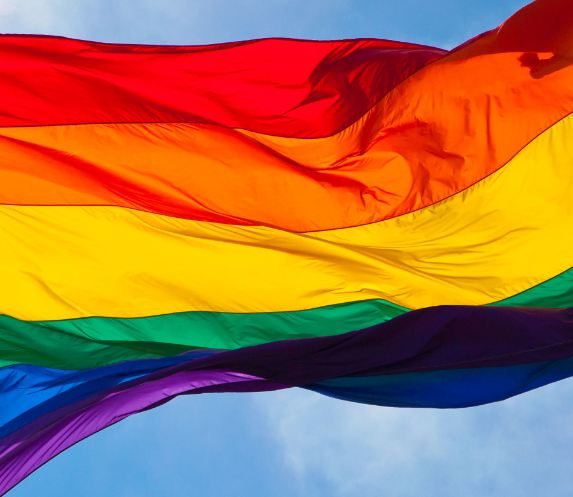A colourful parade of some 100 people marched through Hanoi on 5th August, waving flags, riding decorated bicycles, and chanting “We support same-sex marriage” in Vietnam’s first ever police-sanctioned Gay Pride event.
The celebratory atmosphere came amid suggestions from the government’s Justice Minister, Ha Hung Cuong, that the nation could be set to amend marriage laws and introduce rights for same-sex couples. Such a move would make Vietnam the first Asian state to implement marriage equality.
Yet overseas commentators have not rushed to welcome this apparently positive news. Nguyen Khi Duc, an American-based journalist, and Gina Masequesmay, a professor of Asian-American studies at California State University-Northridge, reacted skeptically to the developments. Asked by the Huffington Post why the Vietnamese government’s attitude to gay marriage was advancing “when it’s behind in so many other areas of human rights,” Mr. Duc described the issue as a “diversion” from other social and political matters, while elsewhere Dr. Masequesmay suggested that marriage rights paled in significance compared to other freedoms, asking: “So what if you recognize same-sex marriage if you don’t have other rights or protections?”
Critics are right to point out that other freedoms are less forthcoming, and there is as yet no indication that Justice Minister Cuong’s announcement is indicative of a willingness to grant any other civil rights.
Cuong was careful to frame the debate as one of pragmatism, rather than as one which took inspiration directly from a liberal human rights discourse. “I think, as far as human rights are concerned, it’s time for us to look at the reality,” he said. “The number of homosexuals has mounted to hundreds of thousands. It’s not a small figure. They live together without registering marriage. They may own property. We, of course, have to handle these issues legally.”
Perhaps sexual and marriage rights, important though they are, are easier for the single-party state to introduce than freedom of expression; what is being discussed is a liberal policy that may impress other nations and please members of its own population, but not one that allows for public critique of the government. Vietnam, therefore, may soon be a country in which a person has the right to marry his or her partner of choice regardless of gender, but it looks like Vietnam’s citizens will have to wait longer until the day comes when they are able to write a blog calling for further social or political reforms without fear of arrest or imprisonment. The government clearly takes the position that rights are to be granted in a top-down manner, at its say-so; they are not to be claimed by citizens themselves.
While we should not lose sight of such reservations, neither should we altogether dismiss the significance of marriage rights legislation. The mooted equality measures would posit Vietnam as an exemplary state with regard to an area of human rights that has been denied to most of the world’s citizens (only eleven nations permit same-sex marriage to date), and this should be recognised as a step forward for human rights in and of itself.
The prospect of the legislation means a great deal to members of Vietnam’s LGBT (Lesbian, Gay, Bisexual and Transgender) community, who hope that the official recognition of same-sex relationships will lead to greater social acceptance. Speaking to Agence France-Presse (AFP), a young woman in a homosexual relationship, who has so far felt unable to come out to her family for fear of prejudice from others in society, said: “Besides adopting a child, only marriage would recognise and prove love. When I have a marriage licence I will be able to prove that there’s nothing wrong with my love.”
There is also hope that such a change to the law would bring further improvements to society at large, despite the government’s reluctance so far to make way for any such reforms. Sociologist Le Quang Binh of the Institute for Studies of Society, Economy and Environment (iSEE) told the AFP that he hopes liberalization in one area of social freedom will lead to similar improvements in other areas: “When people accept the difference in sexual orientation, it might be easier for them to accept the other kind of difference like religion, belief, ethnicity,” he said. “The debate is important; it is not just about same sex marriage, but very much about social values, about being tolerant of differences.”
The proposal should be cautiously welcomed as a progressive move which grants equality and official acceptance to members of society who have not felt the benefit of these statuses before. While the state’s continuing repression of freedoms of expression and religion is of great concern, Vietnam would not be the first state to take a contradictory stance on human rights (see, for example, anthropologist Talal Asad’s article on the use of state violence by Western signatories to the United Nations Declaration of Human Rights), and any widening of civil rights, however gradual, is to be encouraged and applauded.
Matthew is a postgraduate student of the School of Oriental and African Studies, University of London. He holds a degree in Literature from Oxford University and has worked in the media, sports administration, community work, research, and education in the UK and Vietnam.
 Facebook
Facebook  Twitter
Twitter  Soundcloud
Soundcloud  Youtube
Youtube  Rss
Rss 
